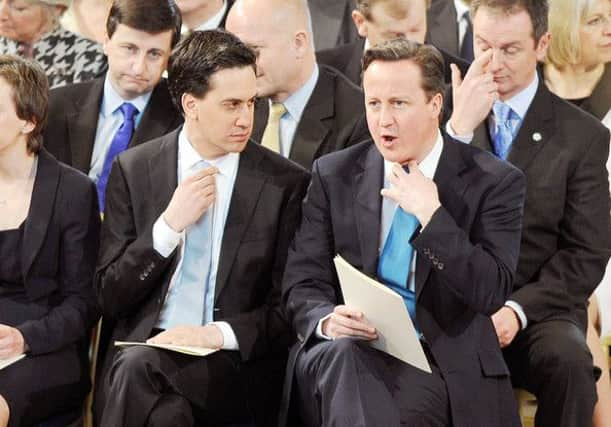David Maddox: Leaders must depend on others


For Ed Miliband, the special conference at the end of the week in which he reforms the Labour Party’s relationship with the unions is a big test of his personal strength in taking on the so-called union barons who made sure he was elected as party leader ahead of his brother David in 2010.
The signs are not good. While Mr Miliband has effectively got rid of the automatic enrolment of union members which became such an issue in the allegations over candidate-fixing in the Falkirk Westminster seat, the unions will still control block votes at Labour conferences, special access to the National Executive Committee, and in exchange Labour will probably lose millions of pounds in affiliate membership fees, weakening their election chances. Already the Tories are portraying it as a cave-in to the unions.
Advertisement
Hide AdAdvertisement
Hide AdBut equally crucial for Tory Prime Minister David Cameron is the arrival of German Chancellor Angela Merkel for talks on, among other things, reforming the European Union.
Since Margaret Thatcher was ousted by her own MPs in 1990, no Conservative leader has been able to keep the eurosceptic wing of the party in check. If anything, the party’s policy is now effectively run by the eurosceptics, and Mr Cameron’s famous plea for Tories to “stop obsessing about Europe” has been ignored – not least by the majority of his backbenchers, who have at times defied him on EU votes.
Mr Cameron’s solution, which has appeased the eurosceptics to a certain degree, is to promise a referendum in 2017 on EU membership, but on the basis that he will fight to stay part of the club as long as he can negotiate powers to be handed back to the UK parliament.
For this gambit to work, Mr Cameron needs Mrs Merkel’s support. In an obvious bid to impress the recently re-elected German Chancellor, he is giving her the full works, including a banquet at Buckingham Palace. But the question is: will it be enough?
If Mrs Merkel ends the visit by saying that she backs reform, his hand will be greatly strengthened, but if she opposes it he is in trouble with a strategy which cannot even get going. In the case of the latter he will be faced with even more support going to Ukip at this year’s European Parliament elections. In reaction to that it is highly likely that his party will insist on going for an EU exit in the manifesto, a position which would sink Mr Cameron as leader.
The problem for both leaders is that neither of them is master of his own or his party’s destiny, and their fates lie in the hands of others.